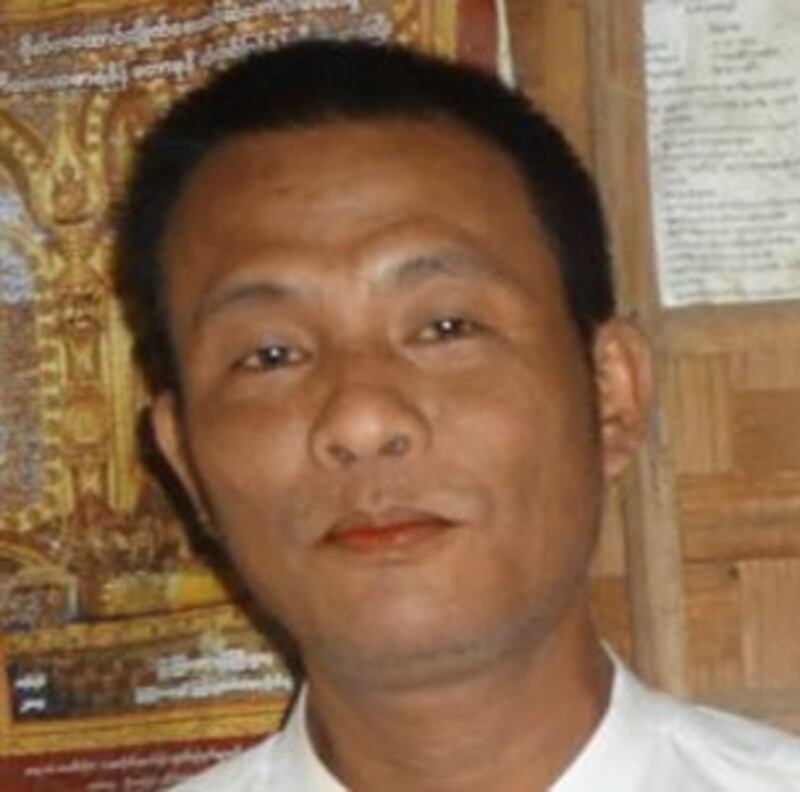Updated at 12.00 p.m. ET on 2014-4-30
A young Cambodian reporter who has been subjected to repeated attacks for exposing rights abuses and a Myanmar journalist jailed after investigating a scholarship program are among 100 “information heroes” honored by a global media watchdog ahead of World Press Freedom Day on May 3.
Also included on the list is a Tibetan Buddhist monk and rights activist who assisted in a documentary about the plight of Tibetans under Chinese rule, as well as three Chinese journalists and three others from Vietnam, Paris-based Reporters Without Borders (RSF) said Tuesday.
“World Press Freedom Day … should be an occasion for paying tribute to the courage of the journalists and bloggers who constantly sacrifice their safety and sometimes their lives to their vocation,” Reporters Without Borders secretary-general Christophe Deloire said in a statement.
RSF said that the new initiative aims to show that the fight for freedom of information should not be limited to providing support for the victims of abuses, but also to the promotion of those who can serve as models.
Cambodia’s photojournalist Oudom Tat, 25, and the youngest of those honored, had previously worked with a nongovernmental organization and as a fixer for foreign reporters seeking to cover land conflicts in Cambodia’s capital Phnom Penh and other provinces.
In 2011, he joined Voice of Democracy—one of the few independent radio stations that dare to criticize the government—where he covered politically sensitive stories, including conditions for workers in Cambodia’s garment sector, protests by people evicted from their land, and campaigns for land rights.
According to RSF, as a result of Oudom Tat’s reporting, he has been “threatened and attacked repeatedly since the start of 2013, both by unidentified men in civilian dress and government officials,” but remains committed to his work promoting human rights in the country.
Zaw Phay, a veteran reporter who covered Myanmar’s monk-led Saffron Revolution in 2007 for the Democratic Voice of Burma, was given a three-year jail sentence in 2010 for filming “without permission” a water shortage issue in central Magway region.
He was released in January 2012 as part of an amnesty, but was sentenced to a year in prison this month after being found guilty of trespassing on government property and disturbing a civil servant while investigating a Japanese-funded scholarship program nearly two years earlier. He is serving the sentence in Thet prison.
Also included on the list is Jigme Gyatso, a Tibetan Buddhist monk and rights activist who, along with now imprisoned Tibetan Dhondup Wangchen, filmed “Leaving Fear Behind,” a 25-minute documentary that includes interviews with more than 100 Tibetans about their experiences living under Chinese rule.
After showing the film in a secret screening on the opening day of the 2008 Olympic Games in Beijing, he was arrested, sentenced to seven months’ imprisonment, beaten, and tortured. He was released in October 2008, but seized again in 2012 by authorities, who RSF said are holding him in secret.

China and Vietnam
Three others from China also made RSF’s list, including Huang Qi, Li Jianjun, and Liu Hu.
Huang, who runs the rights website 64tianwang.com, has documented tens of thousands of human rights violations and won at least 10 billion yuan (U.S. $1.6 billion) in compensation for victims throughout China.
Li’s exposition of corruption cases led to the removal this month of the head of the powerful state-owned conglomerate China Resources Holdings Co., Song Lin, by the ruling Chinese Communist Party’s Central Commission for Discipline Inspection.
Liu, a journalist with the Guangzhou-based Modern Express daily, was held in detention and charged with defamation after posting information about embezzlement by a local official on his personal page on the Weibo social network, because he knew that censorship would prevent its publication in the newspaper.
Three Vietnamese honored by RSF are Catholic priest Anton le Ngoc Thanh, former military officer and ex-Vietnamese Communist Party member Pham Chi Dung, and blogger Truong Duy Nhat.
Thanh, who works for Vietnam Redemptorist News, has been arrested at least twice, including last year during a demonstration in support of blogger and activist Dinh Nhat Uy who has been campaigning for the release of his jailed younger brother. Thanh remains under constant police surveillance.
After quitting the Vietnamese Communist Party, Dung devoted himself to critiquing Vietnam’s political class through his writings and was arrested in July 2012 on charges of “conspiring to overthrow the government” and “anti-government propaganda,” though he was released seven months later.
Nhat resigned from state media in 2010 to focus on his blog “Another Point of View,” posting more than 1,000 articles in the space of three years. After four orders to close his blog, he was finally arrested in May 2013 and sentenced to two years in prison for 12 of his most sensitive writings.
Annual ranking
China and Vietnam were among Asian nations whose rankings dropped this year in RSF’s annual press freedom index, which was released in February and measures the overall level of violations of freedom of information in 180 countries year by year.
China's ranking fell from 173 to 175 as the Communist Party ramps up online censorship and keeps in jail the largest number of journalists and netizens in the world, including Nobel laureate Liu Xiaobo.
Vietnam, which dropped to 174th place from 172nd, has stepped up information controls to the point of being "close to catching up with its Chinese big brother," according to RSF. The nation remains the world’s second-largest prison for bloggers and netizens.
The report also questioned whether Myanmar's reforms and democratization under President Thein Sein are beginning to run out of steam as the government struggles to resolve sectarian and ethnic conflicts. Myanmar's ranking rose seven notches to 145 in the global index.
Cambodia’s ranking fell to 144 from 143.
